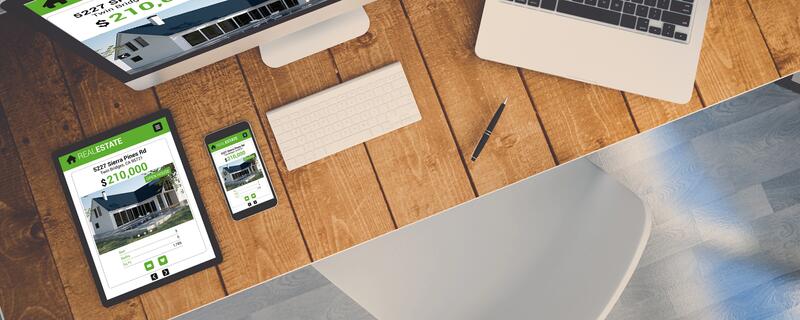Ever found yourself staring at a stunning PSD design, thinking, “How on Earth do I turn this beauty into a functional website theme?” You’re not alone! If you’re a designer looking to convert your creative masterpieces into website themes, this guide is for you.
Why Convert PSD to Website Theme?
1. Wider Reach
Turning your PSD designs into themes allows you to showcase your work to a broader audience. Designers, developers, and entrepreneurs everywhere are always on the lookout for unique and functional themes.
2. Passive Income
Once you’ve created and uploaded your themes, you can earn passive income every time someone purchases your design. It’s like planting a money tree in your digital garden!
3. Portfolio Enhancement
A well-crafted theme in your portfolio demonstrates your versatility and technical prowess, making you a hot commodity in the design world.
Tools to Convert PSD to Website Themes
1. Adobe InDesign
If you’re looking for a professional tool with robust layout capabilities, Adobe InDesign is a great choice.
Pros:
- Professional Layout Tools: InDesign offers robust tools for creating complex layouts.
- Integration with Adobe Suite: Seamlessly integrates with Photoshop and Illustrator.
- Export Options: Export your designs as HTML and CSS.
Cons:
- Learning Curve: It can be tricky for beginners who are not familiar with Adobe products.
- Price: Adobe’s subscription model can be pricey for freelancers.
How to Use:
- Open your PSD in Adobe InDesign.
- Use the layout tools to arrange your design elements.
- Export your design as HTML and CSS.
2. GIMP + HTML/CSS/JS
For those who prefer open-source software, GIMP is an excellent free alternative to Photoshop.
Pros:
- Free: GIMP is an open-source alternative to Photoshop.
- Customizable: Highly customizable with plugins and scripts.
Cons:
- Limited Features: Not as feature-rich as Photoshop.
- Manual Coding: Requires manual conversion to HTML/CSS/JS.
How to Use:
- Open your PSD in GIMP.
- Export slices of your design.
- Manually code your website theme using HTML, CSS, and JavaScript.
3. Avocode
If you want a tool specifically designed for converting designs, Avocode is perfect for managing layers, assets, and code snippets.
Pros:
- Cross-Platform: Works on Windows, macOS, and Linux.
- Layer Management: Easily export layers, assets, and styles.
Cons:
- Subscription-Based: Can be expensive for occasional users.
- Requires Internet: Needs an internet connection for full functionality.
How to Use:
- Upload your PSD to Avocode.
- Export assets and code snippets.
- Assemble your theme in your preferred code editor.
4. Figma
For collaborative design work, Figma offers real-time collaboration features and a robust set of tools.
Pros:
- Collaboration: Real-time collaboration with team members.
- Auto Layout: Simplifies responsive design.
- Plugins: Extensive plugin library for additional functionality.
Cons:
- Learning Curve: Requires some time to master.
- Internet-Dependent: Needs a stable internet connection.
How to Use:
- Import your PSD into Figma.
- Use Figma’s export features to get HTML, CSS, and assets.
- Fine-tune and assemble your theme.
5. Pinegrow
For a visual editor with drag-and-drop functionality, Pinegrow is a powerful tool that also supports WordPress integration.
Pros:
- Visual Editor: Drag-and-drop interface.
- WordPress Integration: Easily convert your designs into WordPress themes.
Cons:
- Price: More expensive than some other tools.
- Complexity: Can be overwhelming for beginners.
How to Use:
- Import your PSD into Pinegrow.
- Use the visual editor to convert your design.
- Export your theme as HTML/CSS or a WordPress theme.
Tips for a Smooth Conversion
1. Plan Your Layout
Before diving into conversion, plan your layout. Break down your PSD into header, footer, main content, and sidebar sections.
2. Optimize Images
Optimize your images for the web. Use tools like TinyPNG to reduce file sizes without compromising quality.
3. Use a Grid System
A grid system helps maintain consistency and alignment. Popular choices include Bootstrap and Foundation.
4. Test Responsiveness
Ensure your theme looks great on all devices. Use tools like BrowserStack to test across different browsers and devices.
5. Validate Your Code
Use validators like W3C Markup Validation Service to check for errors and ensure your code meets web standards.
Selling Your Themes with DPD
So, you’ve converted your PSD to a dazzling website theme. Now, how do you sell it? Enter DPD, the digital product delivery platform that makes selling digital products a breeze.
Why DPD?
- Ease of Use: No coding required! Perfect for designers who want to focus on design.
- Secure Delivery: Ensures your themes are delivered securely to buyers.
- Payment Integration: Supports multiple payment gateways, including PayPal and Stripe.
- Analytics: Track your sales and understand your customers better.
How to Sell Your Themes on DPD
- Sign Up: Create an account on DPD.
- Upload Your Theme: Add your theme files and set your price.
- Create a Product Page: Customize your product page with descriptions, images, and demos.
- Promote Your Product: Share your product link on social media, forums, and your website.
- Monitor Sales: Use DPD’s analytics to track your performance and make data-driven decisions.
Conclusion
Converting PSDs to website themes can seem daunting, but with the right tools and a bit of patience, it’s entirely doable. Whether you’re using Adobe InDesign, GIMP, Avocode, Figma, or Pinegrow, each tool offers unique features to help you bring your designs to life.
And once your masterpiece is ready, selling it on DPD is a straightforward process that ensures secure delivery and payment integration. So, what are you waiting for? Dive into the world of theme design and start earning from your creativity today!
